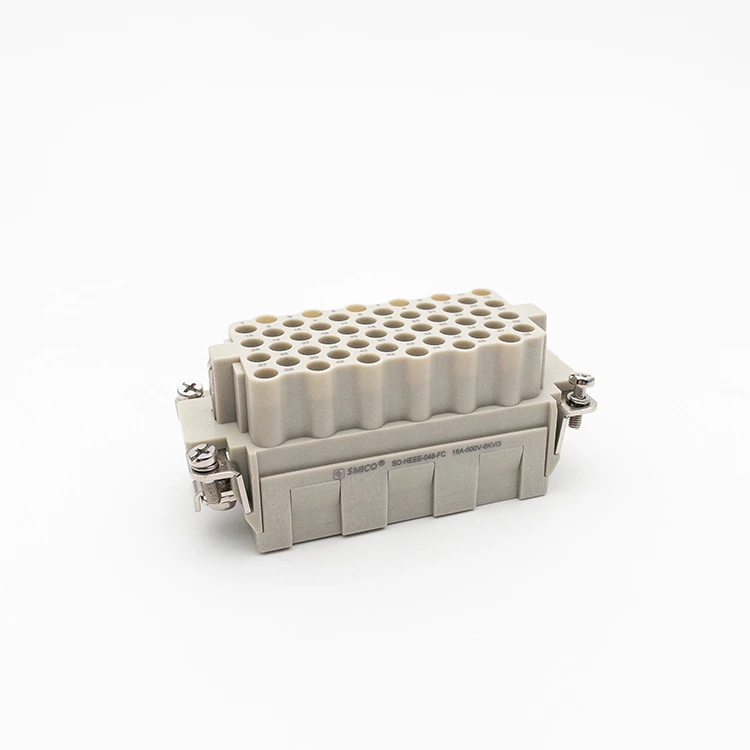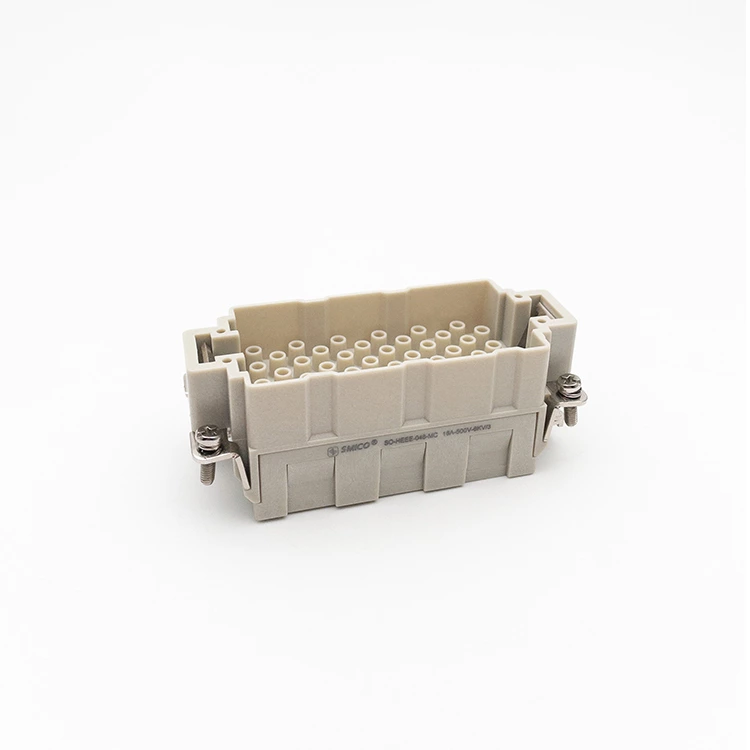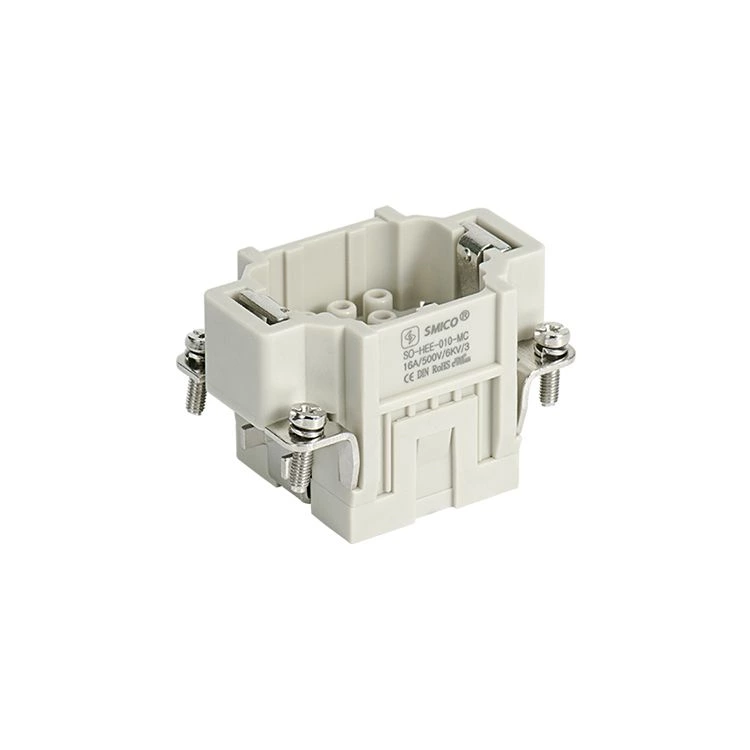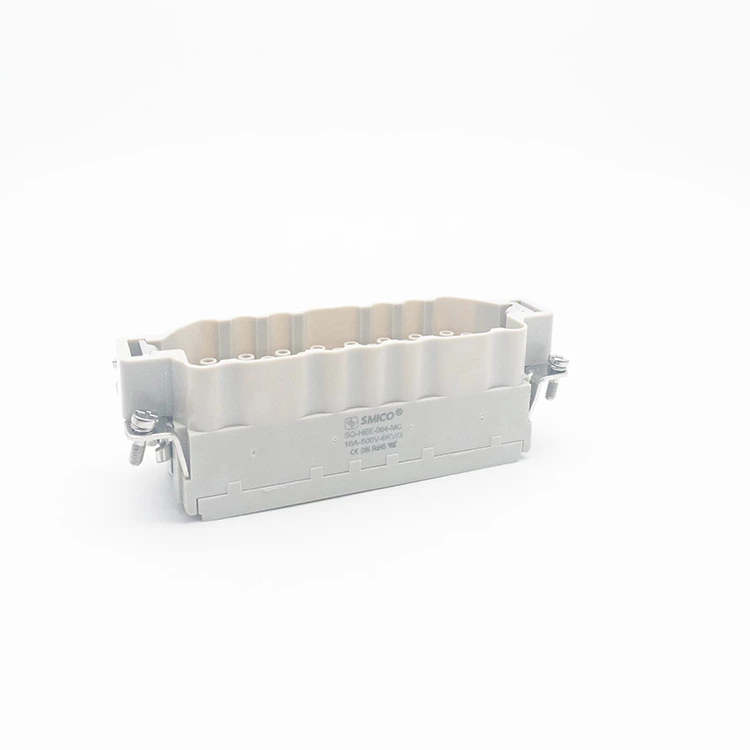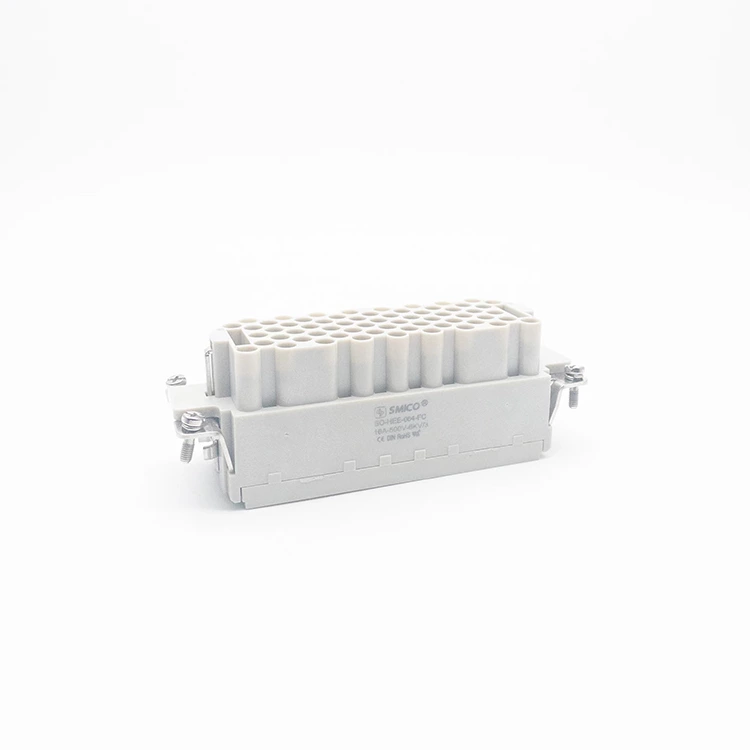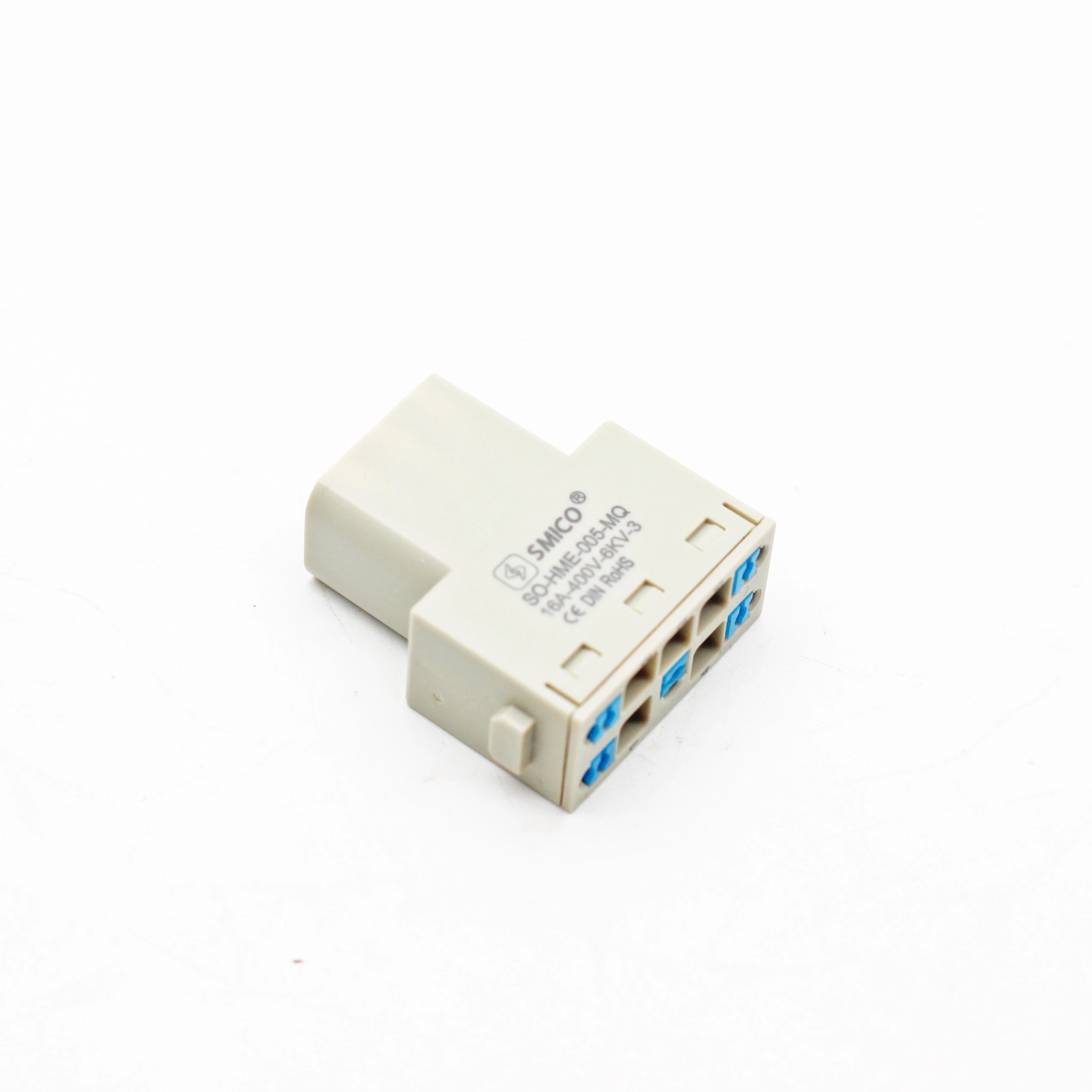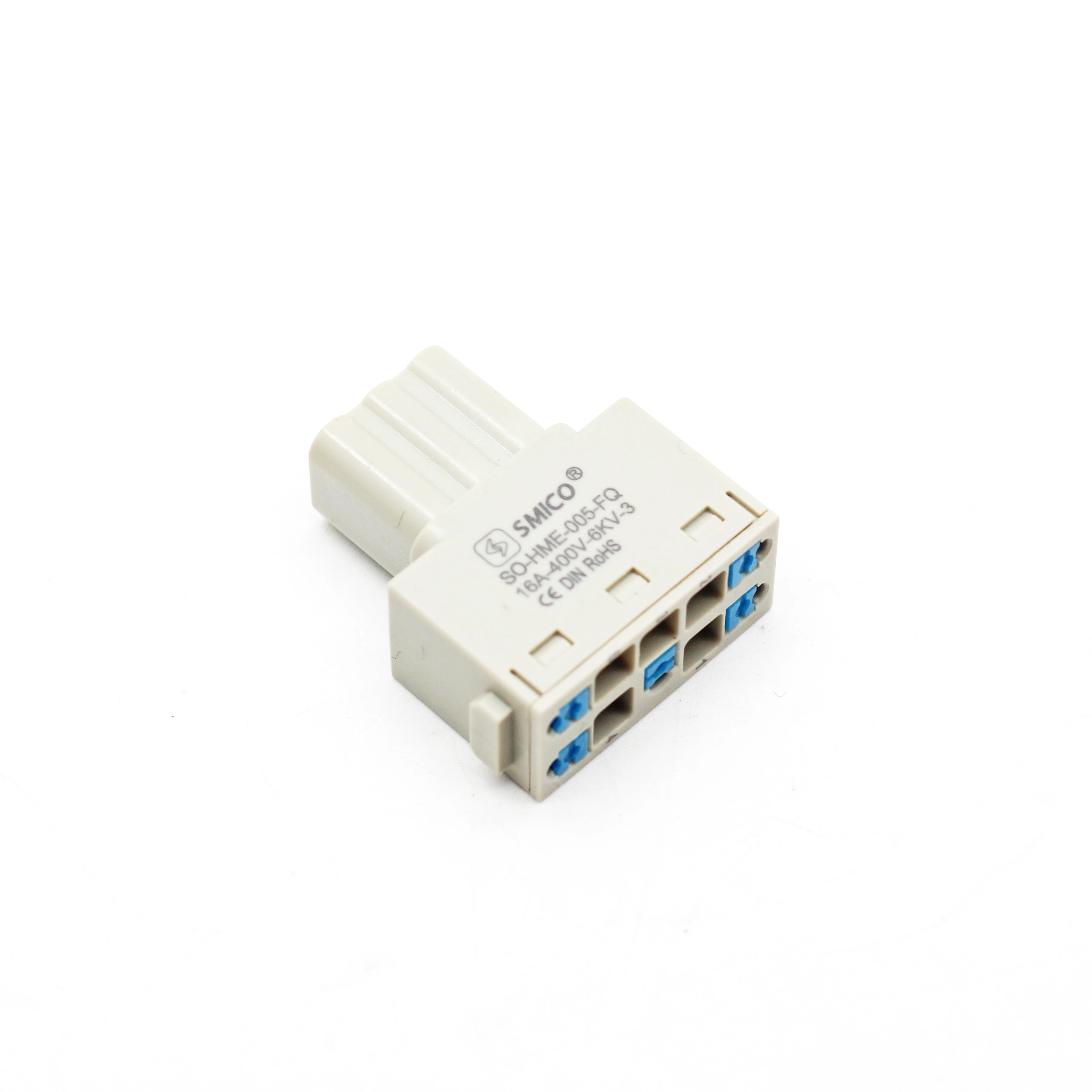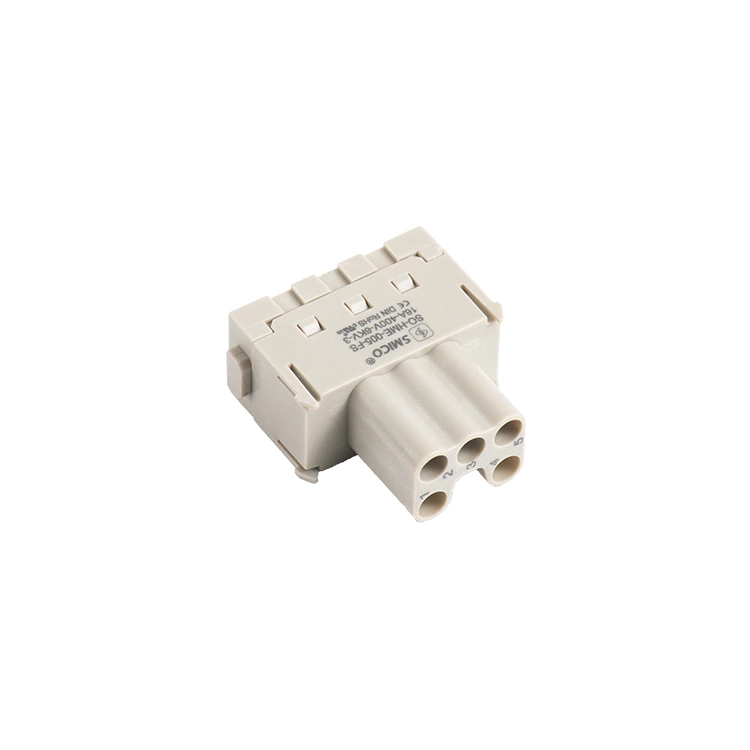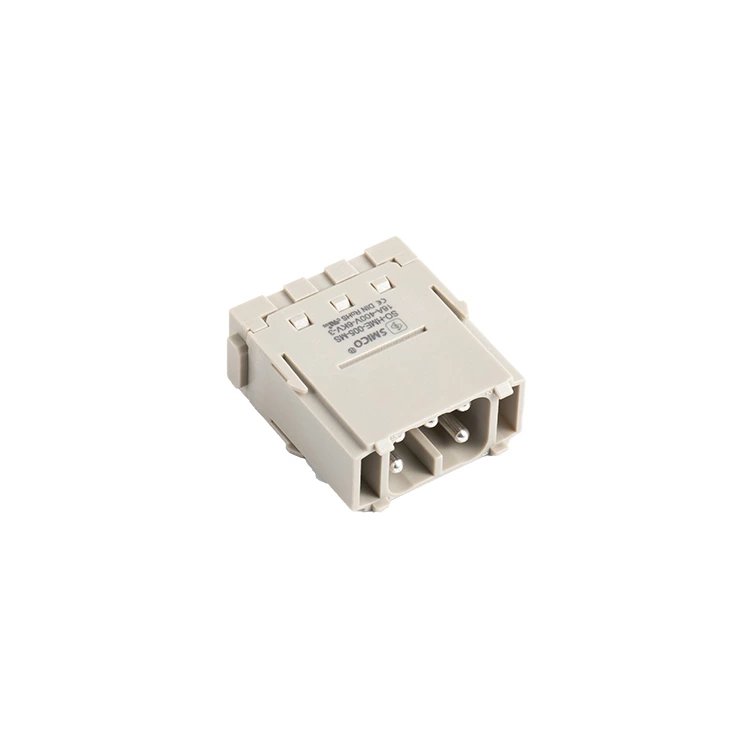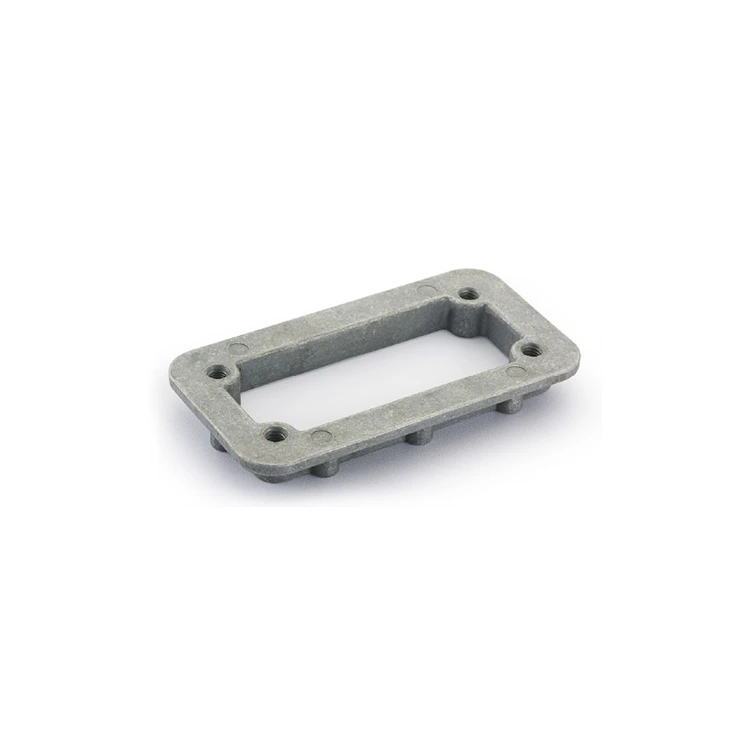Application And Development Of Rectangular Connectors
Heavy Duty Connector is one of the indispensable components in modern electronic devices. As a bridge for electrical connection, rectangular connectors are widely used in various fields for their stability and reliability. This article will explore the basic concepts, structural characteristics, application scenarios and future development trends of rectangular connectors.
1. Basic concepts of rectangular connectors
A rectangular connector is a device that realizes electrical connection by plugging and unplugging, and its appearance is usually rectangular. It consists of two parts, a plug and a socket. After the plug is inserted into the socket, the transmission of current and signals can be realized. The design of rectangular connectors usually takes into account a variety of factors, including mechanical strength, electrical performance, environmental adaptability, etc. Its main function is to ensure the stability and reliability of the connection and prevent the connection from failing due to vibration, moisture or other environmental factors during use.
2. Structural characteristics
The structural design of rectangular connectors is varied, but generally has the following characteristics:
Modular design: Rectangular connectors usually adopt modular design, which is convenient for combination and expansion according to specific needs. This design makes the production and maintenance process easier.
Easy plugging and unplugging: Compared with other types of connectors, the plugging and unplugging process of rectangular connectors is simpler. This design makes the maintenance and replacement of equipment more convenient and improves work efficiency.
Reliable contact performance: Rectangular connectors usually use highly conductive materials, such as copper alloys, to ensure good current transmission performance when connected. At the same time, the contact point design of the connector is also precisely calculated to ensure stable contact.
Protective design: In order to improve the durability of rectangular connectors, many products will add protective measures during design, such as dustproof and waterproof, to adapt to different usage environments.
3. Application scenarios
Rectangular connectors are widely used, mainly covering the following areas:
Automotive electronics: In modern cars, rectangular connectors are widely used in electrical systems, including power systems, entertainment systems, navigation systems, etc. Due to the complexity of automobiles, reliable connectors are the key to ensuring safety and performance.
Industrial automation: In industrial automation equipment, rectangular connectors can connect sensors, actuators, and control systems to ensure stable transmission of data and power and improve production efficiency.
